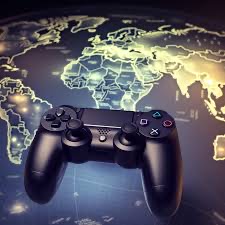With around 3.24 billion gamers worldwide, gaming is a truly global phenomenon. Due to its presence across different locations, demographics and cultures, gaming has evolved as an industry.
Globalisation has helped a card game of suspected Spanish or Mexican origin to evolve into what online rummy is today in India. Such is the impact that rummy app downloads run into millions in India! It is through globalisation that the gaming industry has also influenced, and got influenced by cross-cultural exchanges.
The Global Stature of Gaming
The gaming population is present in all the major geographies in the world, thus confirming its global appeal. Europe, the Middle East, Africa, Latin America, and North America had more than 200 million gamers in 2020, with Europe closest to 400 million. The populous Asia Pacific region had over 1.4 billion, with India and China alone accounting for a billion. In terms of global gaming revenue, Asian, North American and European countries all have a hearty presence. China, the US, Japan, Korea, Germany and the UK are the key revenue earners globally.
The advancement of technology has enabled the gaming industry to globalise and localise in a balanced manner. The rapid spread of the internet and smartphones has helped the industry achieve global outreach. With the increased presence, there has been an increase in influence as well. It is no surprise that the International Olympic Committee created the Olympic Esports Series. It might not be long before it becomes a part of the Olympic Games too.
Impact of Globalisation on Gaming
Globalisation has significantly influenced how online games are conceived, developed and marketed. And to an extent, how it engages with the audience as well. Video game localisation is now a part of most gaming studios. It promotes the adoption and incorporation of local aspects into gaming. Therefore, the most prominent impact of globalisation on gaming can be seen in its localisation.
In 2018, Electronic Arts decided to use the voice of an Emirati commentator for its football video game, FIFA. FIFA 2022 was available in 14 languages. Assassin’s Creed also featured Arabic language to appeal to 20 Arabic-speaking countries. Arena of Valor, developed in China, is now available in Tamil! And not just voiceovers, even payment options are being made region-specific to add a local flavour. Customer engagement is another area that has undergone rapid localisation. Online rummy enthusiasts would notice this if they download rummy app like RummyTime, which offers customer support in all major Indian languages.
Within the game, game localisation now extends to images, cultural aesthetics, character names and even in-game announcements. It is opening up new territories for gaming platforms and expanding their market size. For gamers, on the other hand, it is increasing their affinity and loyalty towards a particular gaming brand.
Gaming and Cross-Cultural Exchanges
While game localisation is a conscious step by the studios, games have influenced cross-cultural exchanges due to the globalisation of the industry. Cultural influences are embedded in the games and reflected in the art and storytelling too. Game developments consider local elements like mythology, history and folk traditions, as well as local language. Poker apps include a lot of the terminologies used in the North American poker tables. In India, online rummy incorporates and offers local variations of the game.
When it comes to development, the cross-cultural composition of the collaborators cannot be ignored. Gaming studios are now facilitating collaborations between developers, animators, graphic professionals, musicians, etc., from different cultural backgrounds. Gaming process outsourcing is a common practice in the industry, which has facilitated such cross-cultural exchanges even more. For instance, Electronic Arts, Sony, and Microsoft collaborated with the likes of Glass Egg of Vietnam and Virtuos of China for several of their games.
The end product, as a result, is culturally more rounded and accommodative to diverse cross-cultural exchanges.
The Culture of Togetherness
Gaming communities can be referred to as one of the major cultural contributions of the gaming industry. The popularity of online games gave rise to a massive population of gamers, people who have more similarities than differences. This like-mindedness has given rise to gaming communities, where gamers from different locations and cultural backgrounds can meet, often virtually, on a common forum. Communities have served as a conducive platform for sharing experiences and collaborations, bonding and cultural exchanges.
Gaming platforms and studios have incorporated in-game communities and forums to facilitate and address this need. Besides, they organise large-scale tournaments and offline events to bring the gaming community together. Platforms are also quite eager to engage with their customers on various forums and social media platforms and promote this culture of togetherness.
The Global Game
The viral popularity of a new indie game and the anticipated release of the next big studio game will continue to remain. However, gaming is also undergoing a cultural change due to globalisation. Inclusivity and localisation will keep gaming relevant across different cultures and geographies. With the incorporation of the latest technologies and tools like blockchain and metaverse, cultural exchanges in gaming are reaching new heights. With its accessibility and reach heightened, the globalisation of the gaming industry is expected to run its course for many years to come.
👉 Click here to read the latest Gujarat news on TheLiveAhmedabad.com





